Notice any of these commonly identified pests in or around your home? If so, YOU MAY HAVE AN INFESTATION!
Contact us immediately and we'll get them completely out of your way.
THESE ARE COMMON PESTS TO OUR AREA WHICH WE FREQUENTLY ELIMINATE FROM OUR CUSTOMERS' SPACES . IF YOU HAVE SEEN ONE OF THESE PESTS IN YOUR AREA, YOU MAY HAVE AN INFESTATION
-
Full Service Pest Control
Regardless of where you live or where your office is located, no matter how clean and spotless your home or establishment is, there is some type of pest that will enter or be brought in. Triad Pest Control offers solutions to get rid of not only the most common pests, but also the ones that you may not even see or think to look for. Browse through for some of the more common pests we will take care of for you. Trusted for over 35 years, Triad Pest Control is your full-service pest control company for all of your pest, termite and rodent problems.
-

COCKROACHES
-
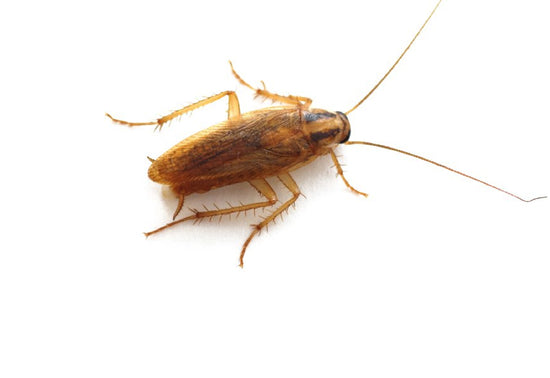
-
Oval shape; Flat body
Pronotum projects over head
Long, spindly legs
Color varies by specia
The most common roach is the german roach, which infests most homes and restaurants
Can be transported through boxes, bags, and house guests.
RODENTS
-
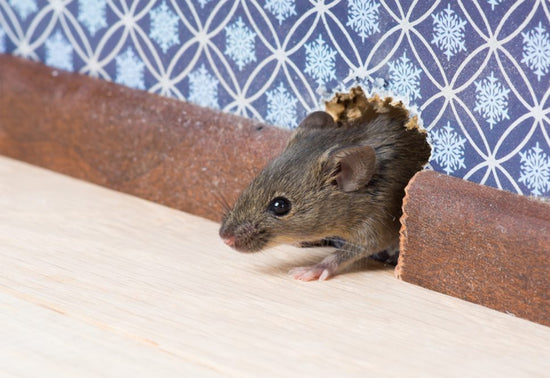
-
Rats and Mice
Generally small bodies covered in fur
2 incisors at front of mouth used for gnawing
Active all year round, most active in fall and winter
Can squeeze through any small opening
Scratching sound in walls and attic is a possible sign of rodents
If over-populated, rats will bite
Pet, food, garbage, and trash piles attract rodents
BED BUGS
-
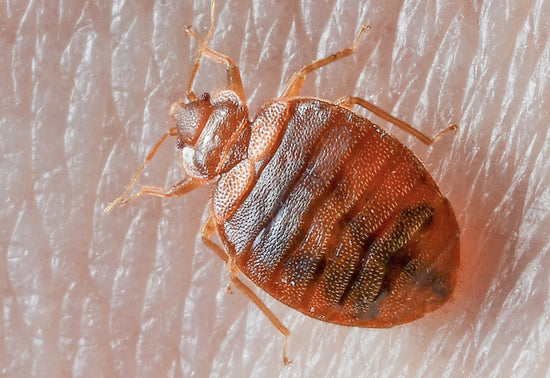
-
PEST CATEGORY: BED BUGSBED BUGS(1)
Bed bugs are flat
reddish-brown
oval insects up to 4 to 5 mm long or the size of an apple seed
Swollen and reddish after a blood meal
Bed bugs only feed on blood
Under cool conditions, bed bugs have been able to survive up to a year without a meal. They prefer to be more active at night when the host is asleep.
Bed bugs are found in cracks and crevices, including mattress seams, sheets, furniture, behind baseboards, electrical outlet plates and picture frames. Often found in hotels, where they can travel from room to room and in visitors’ luggage or other personal belongings such as purses and briefcases.
CLOVER MITES
-
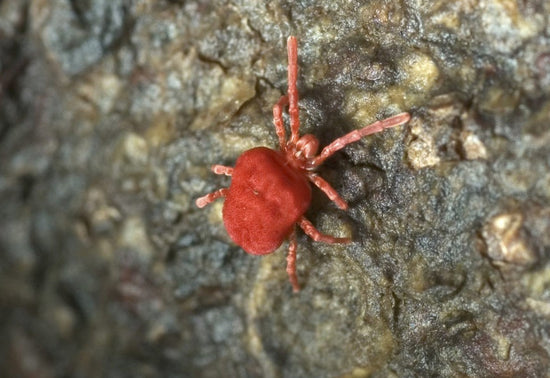
-
1/64 inch long
Bright red color when young
Brown to olive green when adult
Body shape similar to ticks
Long front legs
CRICKETS
-
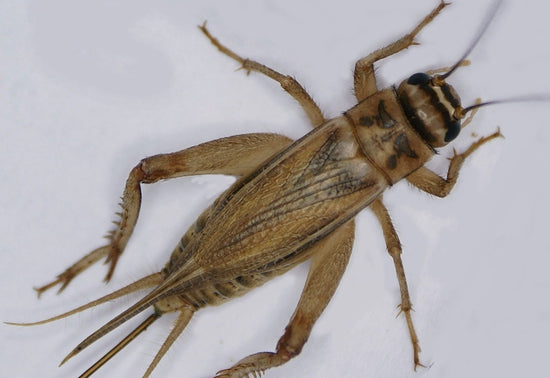
-
¾ to 7/8 inches long
Yellow-brown or straw colored
Three dark bands across top of head
Long, slender antennae
Wings lay flat on back
Won’t bite or sting
Most common cricket is the House Cricket and Camel Cricket
Camel crickets are active in the crawl space of your home. House Crickets are more common in basement and slab homes
FLIES
-
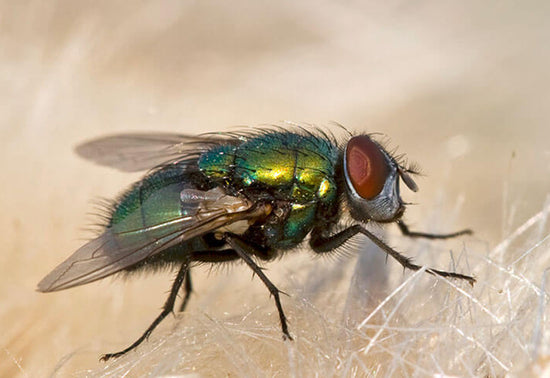
-
3/8 Inch long
Nonmetallic gray in color
Wings completely over back
Non-striped thorax will yellow or golden hairs
The most common fly is the House Fly. They will lay eggs and regurgitate everywhere they land.
The Drain Fly is another common house pest. Often mistaken for the Fruit Fly, their habitat is drains, flower pots, and trashcans. They are often difficult to eliminate.
Other common flies include the Horse Fly, Fruit Fly, Blue Bottle Fly, and the Blow Fly
CENTIPEDE
-
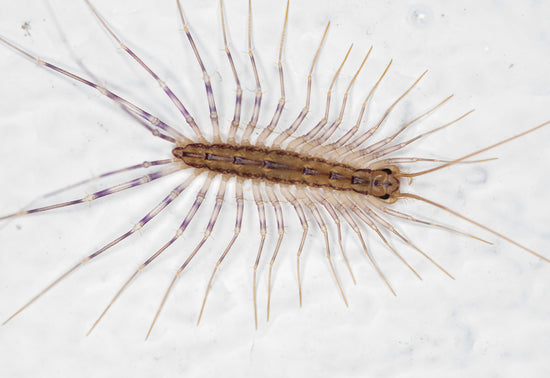
-
Yellow to dark brown
1/8 to 6 inches long
Flattened body
One pair of slender antennae
Multiple legs (15-177 pairs)
EARWIGS
-
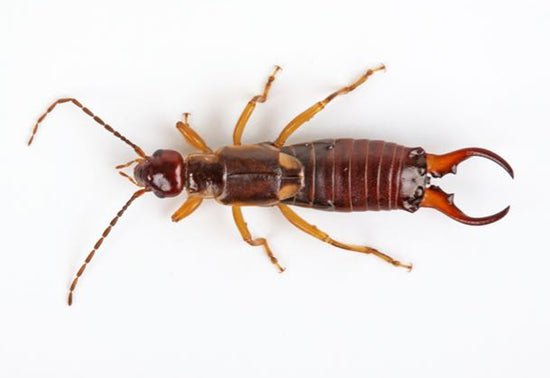
-
¼ to 1 inch long
Dark brown to black in color with red head
Pincer-like appendages at end of abdomen
Long, flat body
Threadlike antennae
PILLBUGS
-
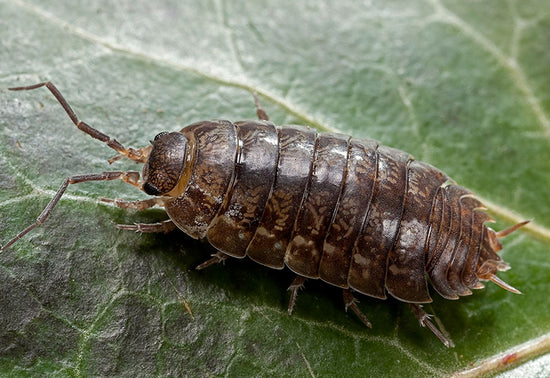
-
Dark to slate gray
¼-5/8 inch long
Oval shape
Hump-backed in appearance
Able to curl into a ball
STINK BUG
-
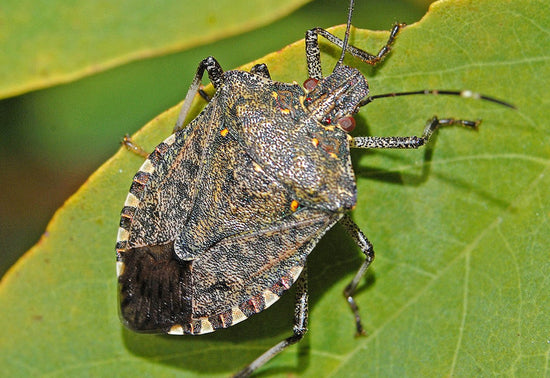
-
Stink bugs are large, oval or shield-shaped insects.
SPIDERS
-
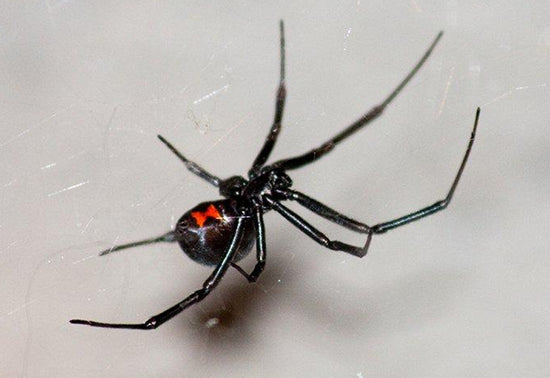
-
Eight Legs
No wings or antennae
Jaw-like structures
Spinnerets at tip of abdomen
In the eastern part of North Carolina, the Black Widow and the Brown Recluse are the most deadly spiders.
The Black Widow is recognized by the red spot on their abdomen
Habitats for the Black Widow spider include wood pile, under porches, in basements, in crawl spaces and dark cluttered areas in which they can hide.
The Brown Recluse spider is identified by its violin shapes body, as well as the pattern-less abdomen covered with fine hairs
The Brown Recluse is more deadly than the Black Widow spider
STINGING INSECTS
-
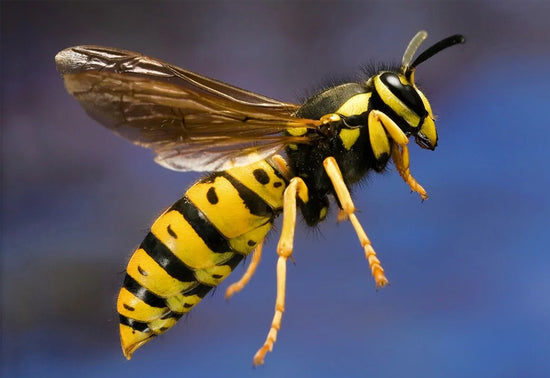
-
Yellow Jackets prefer to nest in the soil and can be found underground. They get their name Yellow Jacket from their yellow coat with black markings. They don’t sting, they bite. If you remain calm, you can reduce the chances of a negative reaction from their bites.
Hornets live under wood debris, dead tress and stumps. Hornets sense your fear and will chase you. Hornets are the only stinging insect that can sting underwater.
Honeybees are active all year round. They nest in cracks and crevices in and around buildings. They are known to make honey. If you eliminate the queen, the other bees will vanish.
TERMITES
-
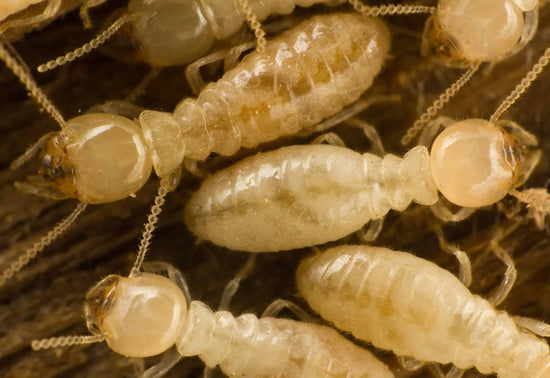
-
Soft Body
Six short legs
Whitish or clear in color, though winged versions will be darker
When present, wings will be twice as long as body
Active all year round
February until late May is considered swarm season
Wood destroying organism and will enter any home
Termites cause more damage to home and building annually than fires and storms.
TICKS
-
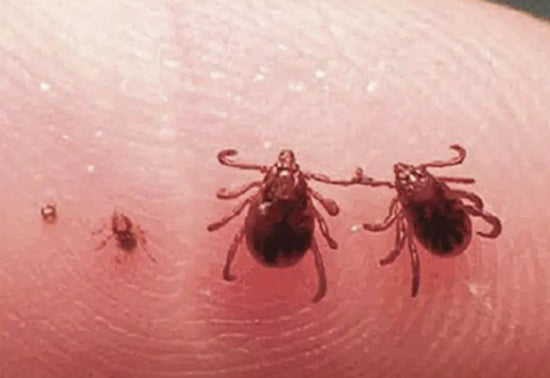
-
Parasite that feeds from a blood host
Three life stages; larva, nymph, and adult
Hard or soft body
Legs vary with age
Mouth piece with three components
Major mouth component usually has small, beaklike protrusions
The deer tick carries Lyme Disease















